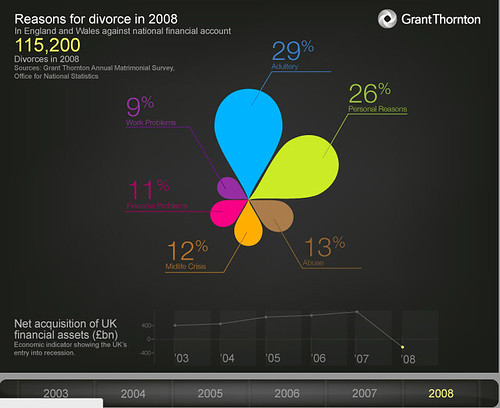In July, the UK’s economy stagnated unexpectedly for the second month running. This is a sign of greater challenges ahead for the newly elected Labour government that has pledged to revive the growth prospects for the country.
The economy has not expanded despite optimistic predictions of a 0.2% increase. This is due to declines both in construction and manufacturing.
The news is a major blow for Prime Minister Keir starmer, especially as the government prepares to present Labour’s First Budget at the end of Oct.
Economic outlook is impacted by a weak growth
The Office for National Statistics released figures on Wednesday that show the economy is struggling to grow, and the only 0.1% growth in the service sector.
Construction output dropped by 0.4%, adding to the stagnation.
These results were disappointing for the economists, who expected a more robust economic growth after a fairly strong start of the year.
Sanjay Raja is an economist with Deutsche Bank Research. He reflected upon the disappointing results.
The UK economy was weaker than expected in July, despite the small boost provided by the Euros. Not only is the GDP figure lower than anticipated, but it also raises questions about the UK’s ability to sustain its economic recovery.
The lack of growth comes after a June that was stagnant, highlighting the difficulties facing Rachel Reeves in preparing Labour’s inaugural budget. Reeves acknowledged that she will be playing a crucial role in steering the country out of its economic difficulties.
She said, in a press release, that she was “under no illusions about the magnitude of the challenges we face.” “I’ll be honest and tell the British public, change won’t happen over night.”
After the announcement, the sterling remained steady at $1.3098.
Analysts predict that the Bank of England will adjust its monetary policies to reflect the slowing of the economy.
Decisions on interest rates are imminent
This weak performance is just before the BoE meets to discuss monetary policy. It is expected that the central bank will hold rates at 5% after a 25-basis point reduction in August.
The UK’s inflation has been lower than anticipated, too. In July the Consumer Price Index (CPI), which measures the price of goods and services, rose by just 2.2%, barely above the BoE target of 2%.
The BoE is trying to find a balance in order to control inflation while stimulating growth. This could lead economists believe that another rate reduction may be more likely.
Ruth Gregory, economist with Consultancy Capital Economics commented on the importance of July’s GDP for future monetary policy:
The data released today has increased the likelihood of a rate reduction next Thursday, although I expect that rates will remain unchanged.
The second half of the year 2024 will likely see a slower economy despite a lower inflation rate.
BoE forecasted 0.4% for third quarter growth, and 0.2% for final quarter. The latest data, however, suggests that a worsening contraction is possible.
Sanjay Raja has also revised downward his Q3 forecast, warning, “from seeing downside risks in Q3-24 GDP relative to our baseline 0.4 percent quarter-onquarter growth, we see them now building.”
Budget 2019: Labour must make tough decisions
Stagnation of the economy is a challenge to the Labour Government, who has put growth as the priority in its agenda.
The Prime Minister Starmer, and the Chancellor Reeves both promised a Budget that would focus on stimulating economic growth. However, they also warned that tough decisions may be required.
Budget for 30 October is likely to contain tough fiscal measures aimed at ensuring the UK’s ability to weather economic uncertainties.
Anna Leach is the chief economist of Institute of Directors. She said that “the economy was flat and disappointing in July.”
The next Budget must send a positive and strong message about growth. Businesses need to feel confident about growing and investing. They also require a tax system that is predictable, efficient, and supports growth.
Labour’s aim is to reverse the years of stagnation in the economy that many people attribute to policies adopted by the Conservative government.
The UK economy has seen two quarters in a row of growth, with the UK growing 0.7% for the first and 0.6% for the second, but the outlook is still fragile.
Reeves recognized the larger challenge and stated,
The two quarters of economic growth that have been positive cannot compensate for the 14 years of stagnation.
The consensus among economists is that, while initial growth earlier this year looked promising, sustainable growth could be difficult to achieve.
Global context and wider challenges
In contrast, the UK has stagnated growth compared to the performance of its economy in the first six months of this year when it outpaced other G7 countries.
The continued weakness of sectors like manufacturing and construction, however, highlights the fragility of the UK’s economy. It is heavily dependent on the service sector.
Office for National Statistics (ONS) reported that computer programmers, and the healthcare sector rebounded from a strike in June to drive the modest gains in service growth for July.
These improvements have been partially offset by the declines in architecture and engineering services, advertising, as well as other related fields.
The 1% decline in manufacturing was most noticeable in car and machine industries where production fell. Construction’s contraction of 0.4% added to the concerns over broader economic instability.
What is the future of UK’s economy?
The outlook for the UK’s economy is uncertain, with key sectors in decline and an upcoming fiscally challenging environment.
Both June and July’s stagnation in growth underscores how difficult it is to navigate the economic recovery after the pandemic.
Both policymakers and businessmen will have to make tough decisions in the coming months as the BoE and Labour prepare for their respective Budgets.
As Raja from Deutsche Bank noted,
As we enter the fourth quarter, the downside risks for the UK’s economy have increased. A sharper decline than originally anticipated could occur.
The Labour Party will focus on putting together a Budget which not only addresses the immediate concerns of the economy but also lays out a path to long-term economic growth.
The road ahead could be challenging, given the inflationary pressures, slowing of growth and economic insecurity around the world.
This article UK Economy Stagnates for Second Consecutive Month as Growth Fails appeared first on the ICD






